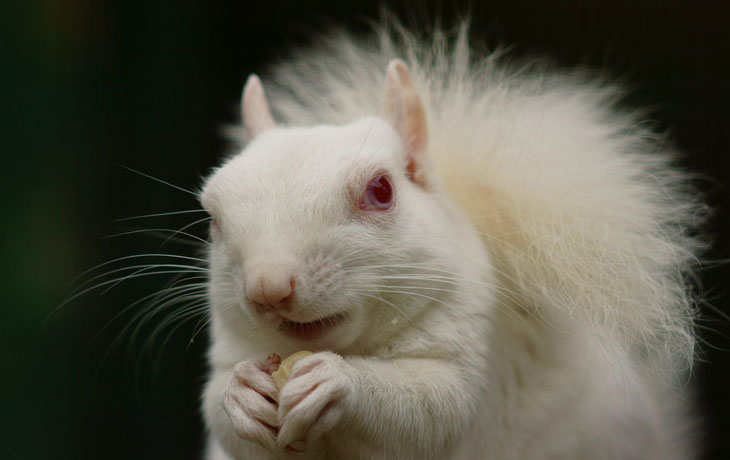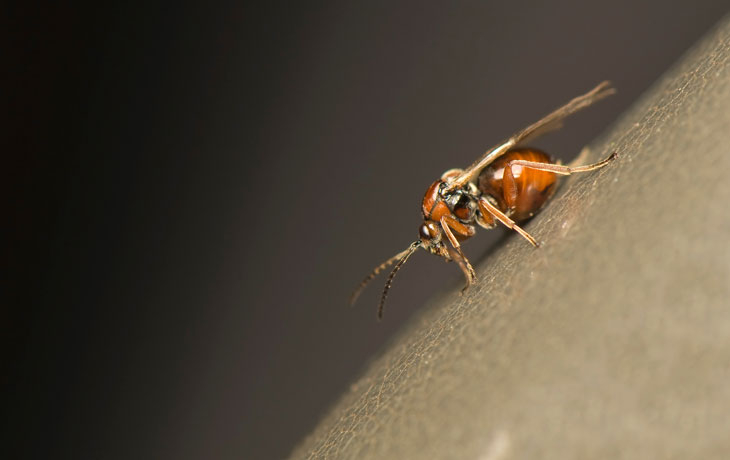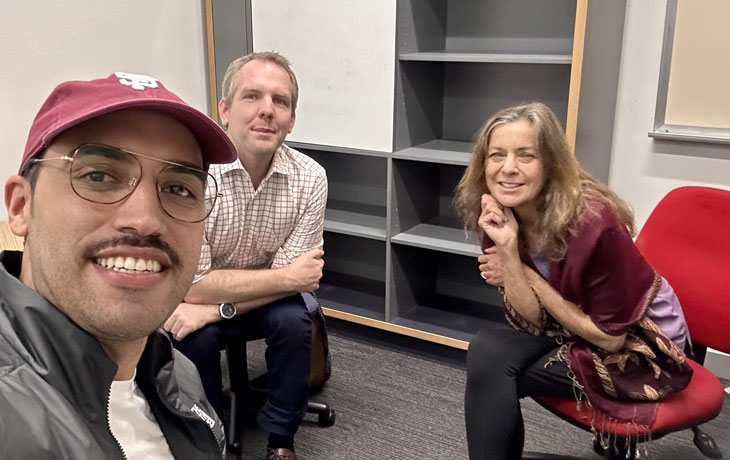Rausser College faculty John Coates, David Zilberman, and Alexandra Hill will co-lead the new International Bioeconomy Macroalgae Center at UC Berkeley, which has been granted nearly $13 million from the NSF and international partners.
Dennis Baldocchi to receive AGU Ambassador Award
Baldocci will receive the American Geophysical Union’s Ambassador Award in recognition of his contributions for scientific leadership to the Earth and Space community.
Conociendo nuestra cultura
This past summer, fourth-year environmental economics and policy student Magaly Santos studied abroad in Mexico City and Oaxaca, exploring sustainable agriculture and water management strategies as communities continue to adapt to climate change.
Small protected areas can have big impact for amphibians
As governments across the world work to expand protected areas in accordance with international agreements, the value of even the smallest protected areas can’t be discounted for their importance in conservation.
Advanced conductors provide path for grid expansion
A first-of-its-kind study led by UC Berkeley researchers found that the US could double its electric transmission capacity by 2035 by replacing electric lines with new material.
Rausser College student, alums named to 2024 Grist 50
ESPM graduate student Ryan Reed and alums Elsie Joshi and Sage Lenier were honored by Grist for their work solving climate problems in innovative and exciting ways.
How California's wildfire risk will reshape neighborhoods
Scott Stephens, a professor of fire science in ESPM, spoke to Bloomberg about new regulations that could transform the Berkeley Hills and neighborhoods across the state.
Ancient soils hold clues about the Atacama Desert
New analysis led by Professor Ronald Amundson determined that the Atacama Desert began drying out roughly 2 million years ago
The cost of controlling termites
Professors David Zilberman and Vernard Lewis and undergraduate Sadie Shoemaker break down the environmental and economic impact of termite fumigation.
UC Berkeley launches new center focused on environmental stewardship
Led by a team of experts in wildlife, data science, and parks and protected areas, the Stone Center for Environmental Stewardship is advancing nature conservation and restoration in the U.S. through community-engaged research, training, outreach, and policy.
Dangerous airborne fungus boosted by California droughts
A new study co-authored by Professor John Taylor identified seasonal patterns in Valley fever infections that could help public health officials prepare for future surges.
Dennis Baldocchi honored by American Meteorological Society
Baldocchi was named the 2025 Verner E. Suomi Technology Medal recipient for his significant technological contributions to atmospheric sciences.
Costa Rica’s rainforests offer a window—and warning
Professor Todd Dawson is part of a collaborative team studying how climate change could reshape forest ecosystems in Costa Rica and around the world.
A new discovery in Mono Lake
Professor Jill Banfield helped UC Berkeley researchers identify a choanoflagellate colony that hosts its own microbiome, something never before seen in these organisms.
Can an aquifer be injured? Scholar brings a disability lens to ecological repair
In her new book Disabled Ecologies, ESPM professor Sunaura Taylor returns to a Tucson Superfund site to document how residents organized one of the earliest and most successful environmental justice movements in the country.
Rausser College welcomes seven new faculty members
Rausser College is excited to welcome new faculty to three departments this fall.
Africa’s path to green growth
New analysis by ERG researchers explores whether Africa’s economic growth could impact efforts to reduce global warming.
How color shapes which animals we fear — and which we protect
From albino squirrels to black coyotes, urban wildlife with unique color variations reveal the role of human bias in wildlife conservation.
What wasps can teach us about engineering plants
Professor Patrick Shih and graduate student Kasey Markel’s studies of how Cynipid wasps reprogram oak trees may hold clues to new methods of engineering plants.
Shaping our understanding of microbial communities
Recent research led by Luis Valentin-Alvarado, PhD ’23 Microbial Biology, identifies a novel group of Asgard archaea and offers new insight into their distribution and function.





















